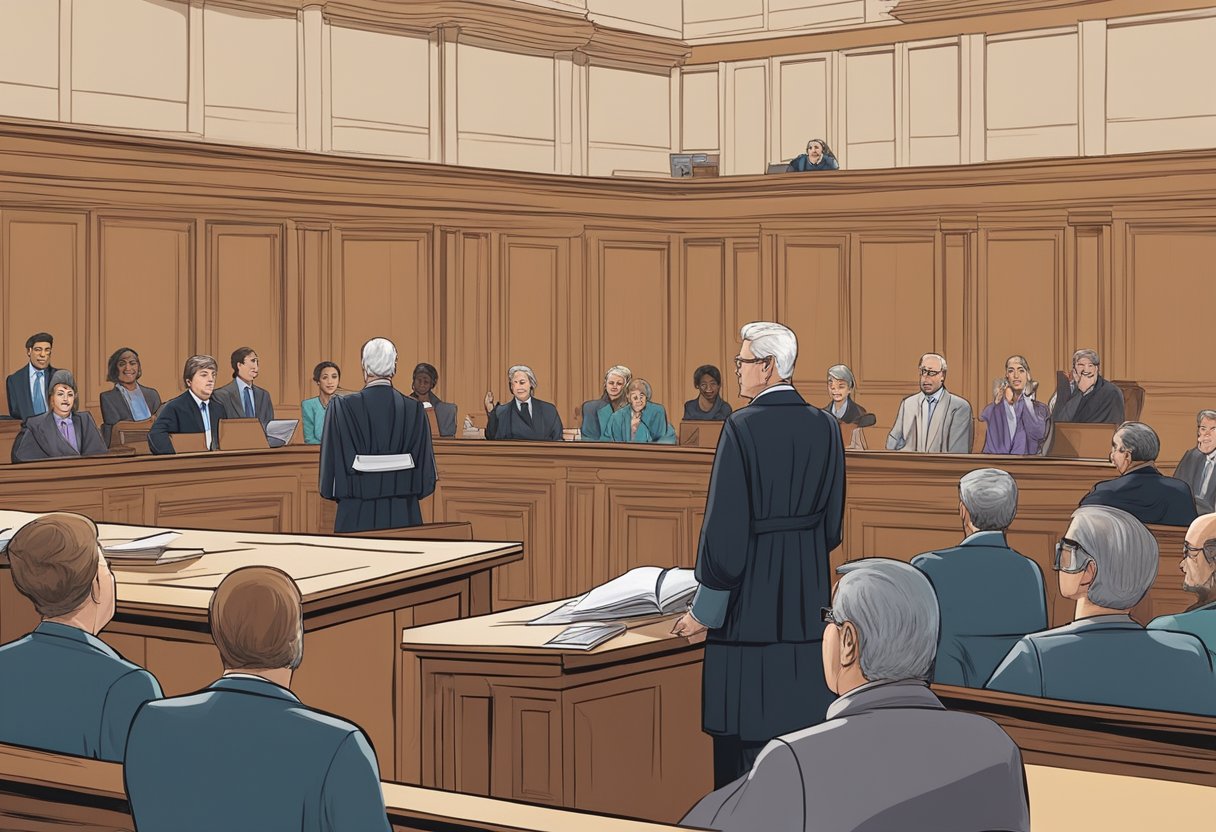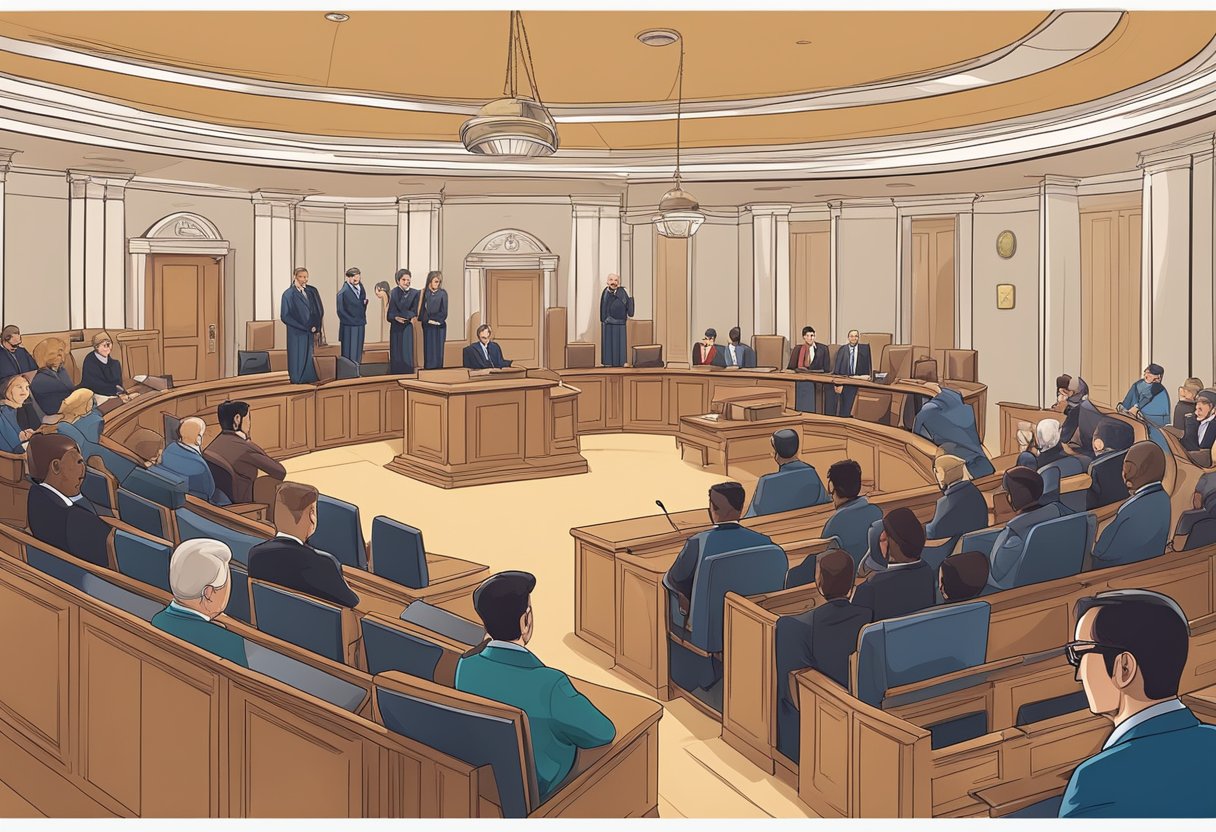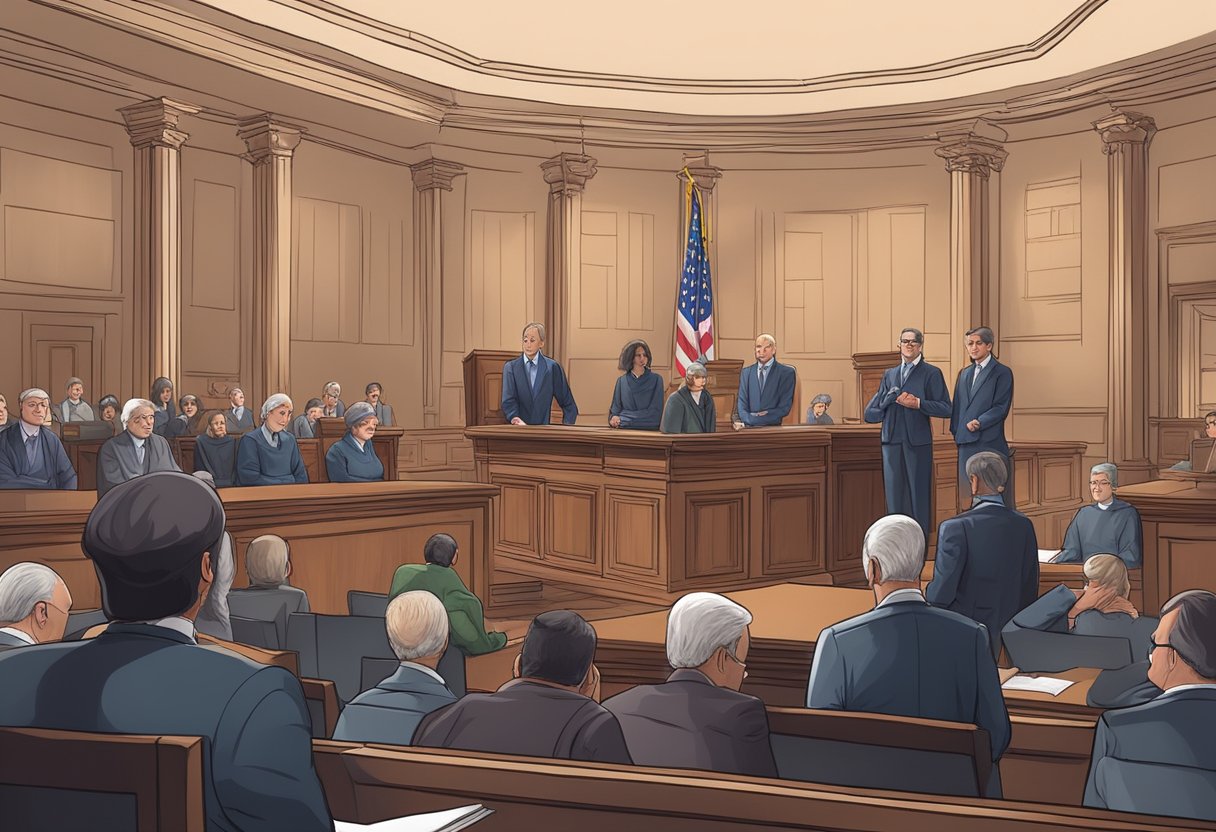The Impact of Hate Crime Legislation: A Comprehensive Overview

AX
Table of Contents
The Impact of Hate Crime Legislation: A Comprehensive Overview
Hate crime is a serious offense that not only affects individuals but also has a significant impact on society as a whole. The enactment of hate crime legislation has been a major step in addressing this issue. Hate crime laws are designed to provide legal protections to individuals who are targeted because of their race, religion, sexual orientation, or other protected characteristics.

AX
The impact of hate crime legislation has been a topic of debate among lawmakers, law enforcement officials, and advocacy groups. Some argue that these laws are necessary to deter hate crimes and protect vulnerable populations. Others argue that these laws are unnecessary and may infringe on free speech rights. Despite these differing opinions, hate crime legislation has been implemented in many countries around the world, including the United States, Canada, and the United Kingdom.
Historical Context of Hate Crime Legislation

Evolution of Hate Crime Laws
Hate crime laws have been a relatively recent development in the legal system. The first hate crime law in the United States was passed in 1968, and it was aimed at preventing violence against African Americans. Since then, hate crime laws have expanded to cover a range of different groups, including those based on religion, sexual orientation, and gender identity.
In recent years, there has been a growing movement to expand hate crime laws to include other marginalized groups, such as people with disabilities and immigrants. This has led to several new hate crime laws being passed at the state and local levels.
Key Legal Milestones
The passage of hate crime laws has been a slow and often contentious process. One of the key legal milestones in this area was the 1990 Hate Crime Statistics Act, which required the Department of Justice to collect data on hate crimes.
In 1994, Congress passed the Hate Crimes Sentencing Enhancement Act, which allowed judges to impose harsher sentences on individuals convicted of hate crimes. This law was later expanded in 2009 with the Matthew Shepard and James Byrd Jr. Hate Crimes Prevention Act, which added sexual orientation and gender identity to the list of protected groups.
Despite these legal milestones, hate crime laws continue to be a controversial topic. Some argue that these laws are unnecessary and violate free speech protections, while others believe that they are a necessary tool for protecting vulnerable communities.
Definition and Classification of Hate Crimes

Legal Definitions
Hate crimes are criminal offenses that are motivated by bias or prejudice towards a particular group of people. The legal definition of hate crime varies from one jurisdiction to another, but generally, it involves an act of violence, intimidation, or property damage that targets an individual or group based on their race, ethnicity, religion, gender, sexual orientation, or disability.
In the United States, hate crimes are defined and prosecuted under federal and state laws. The Matthew Shepard and James Byrd Jr. Hate Crimes Prevention Act of 2009, for example, provides federal authorities with the power to investigate and prosecute hate crimes committed based on race, color, religion, national origin, gender, sexual orientation, gender identity, or disability.
Types of Hate Crimes
Hate crimes can take many forms, including physical assault, vandalism, harassment, and verbal abuse. Some common examples of hate crimes include:
- Racially motivated violence or threats
- Anti-Semitic vandalism or property damage
- Homophobic slurs or verbal abuse
- Islamophobic hate speech or threats
- Disability-based harassment or intimidation
Hate crimes can have a devastating impact on both the victims and the communities they belong to. They can lead to physical and emotional harm, as well as damage to property and public safety. In addition, hate crimes can create a climate of fear and mistrust that undermines social cohesion and democratic values.
Objectives of Hate Crime Legislation

Hate crime legislation is enacted by governments to address the issue of hate crimes. The objectives of hate crime legislation include deterrence, victim support, and societal impact.
Deterrence
One of the primary objectives of hate crime legislation is to deter individuals from committing hate crimes. The legislation makes it clear that hate crimes will not be tolerated and that those who commit such crimes will face severe consequences. By imposing harsh penalties on offenders, the legislation aims to discourage individuals from engaging in hate-motivated behavior.
Victim Support
Another objective of hate crime legislation is to provide support to victims of hate crimes. Hate crimes can have a profound impact on the victims, causing physical, emotional, and psychological harm. The legislation aims to provide victims with the necessary support and resources to help them cope with the aftermath of the crime. This includes access to counseling, financial assistance, and legal support.
Societal Impact
Hate crime legislation also aims to have a positive impact on society as a whole. By criminalizing hate-motivated behavior, the legislation sends a message that such behavior is not acceptable and will not be tolerated. This can help to promote a more inclusive and tolerant society, where individuals are respected and valued regardless of their race, ethnicity, religion, or sexual orientation.
In summary, the objectives of hate crime legislation are to deter individuals from committing hate crimes, provide support to victims of hate crimes, and have a positive impact on society as a whole.
Effectiveness and Enforcement

Law Enforcement Challenges
Hate crime legislation is only effective if it is enforced properly. However, law enforcement faces several challenges when it comes to identifying, investigating, and prosecuting hate crimes. One of the main challenges is the difficulty in determining whether a crime was motivated by hate or bias. This can be particularly challenging when the perpetrator is not caught or when there are no witnesses to the crime.
Another challenge is the lack of training and resources available to law enforcement officers to properly identify and investigate hate crimes. Many officers may not be aware of the specific laws and provisions related to hate crimes, which can make it difficult to properly investigate and prosecute these crimes.
Prosecution and Conviction Rates
Despite these challenges, there have been some successes in the prosecution and conviction of hate crimes. In recent years, there has been an increase in the number of hate crime cases that have been successfully prosecuted. However, the overall prosecution and conviction rates for hate crimes remain low.
One reason for this is the difficulty in proving that a crime was motivated by hate or bias. Prosecutors must be able to demonstrate that the perpetrator intentionally targeted the victim based on their race, religion, sexual orientation, or other protected characteristic. This can be difficult to prove, especially if there are no witnesses or if the perpetrator does not admit to the crime.
In addition, many hate crimes go unreported, which can make it difficult for law enforcement to identify and prosecute these crimes. Victims may be hesitant to report hate crimes due to fear of retaliation or a lack of trust in law enforcement.
Overall, while hate crime legislation has the potential to be effective in reducing hate crimes, there are still significant challenges to enforcement and prosecution. Law enforcement agencies must continue to work to improve their training and resources to better identify and investigate hate crimes, and prosecutors must work to overcome the challenges of proving the motivation behind these crimes.
Critiques and Controversies

Freedom of Speech Concerns
One of the most significant critiques of hate crime legislation is that it infringes on the First Amendment right to freedom of speech. Opponents of hate crime laws argue that they criminalize speech and thought, even if that speech is offensive or unpopular. They argue that hate crime laws are a form of political correctness that restricts free expression and that the government should not be in the business of regulating speech.
Proponents of hate crime laws counter that they do not criminalize speech or thought, but rather the actions that result from hate speech. They argue that hate speech can incite violence and that hate crime laws are necessary to protect vulnerable groups from harm. They also point out that hate crime laws are narrowly tailored and do not apply to all forms of speech.
Disproportionate Targeting
Another critique of hate crime laws is that they are disproportionately applied to certain groups. Critics argue that hate crime laws are often used to target minorities and that they are not applied equally to all groups. They argue that this creates a two-tiered justice system and that hate crime laws are inherently discriminatory.
Proponents of hate crime laws counter that they are designed to protect vulnerable groups that are often the target of hate crimes. They argue that hate crime laws are necessary to ensure that all individuals are treated equally under the law and that they do not discriminate against any particular group.
In conclusion, while hate crime legislation has been implemented to address the increasing number of hate crimes, it is not without controversy. The critiques and controversies surrounding hate crime laws must be carefully considered to ensure that they are effective in protecting vulnerable groups without infringing on individual rights.
Comparative Analysis

International Perspectives
Hate crime legislation has been implemented in various countries across the world, with some variations in terms of scope and application. For example, in the United States, hate crime laws typically enhance penalties for crimes motivated by bias against protected groups, while in Canada, hate propaganda is also criminalized. Similarly, in the United Kingdom, hate crime laws cover a wider range of offenses, including verbal abuse and harassment, while in some other countries, hate crime laws are limited to violent crimes.
Overall, hate crime legislation has been more prevalent in Western countries, where there is a greater emphasis on protecting individual rights and promoting social justice. However, some countries have been criticized for not doing enough to address hate crimes, including Russia, where hate crimes against minorities are reportedly widespread and often go unpunished.
Effectiveness Across Jurisdictions
The effectiveness of hate crime legislation varies across jurisdictions, depending on factors such as the scope of the law, the enforcement mechanisms in place, and the cultural attitudes towards hate crimes. Some studies have suggested that hate crime laws can have a deterrent effect on hate crimes, while others have questioned their efficacy in reducing hate crimes.
One challenge in evaluating the effectiveness of hate crime legislation is the difficulty in measuring hate crimes accurately. Many hate crimes go unreported, and even when they are reported, they may not be classified as hate crimes due to a lack of evidence or understanding of the motivation behind the crime.
Despite these challenges, there is evidence to suggest that hate crime legislation can have a positive impact on society by sending a message that hate crimes are not tolerated and by providing a sense of justice for victims. However, it is important to ensure that hate crime laws are applied fairly and do not infringe on individuals’ rights to free speech or expression.
Future Directions

Policy Recommendations
Moving forward, policymakers should aim to strengthen hate crime legislation by increasing penalties for offenders and expanding the scope of protected classes. This can be achieved by working with law enforcement agencies to ensure that hate crimes are properly identified and prosecuted, and by providing adequate resources to support victims of hate crimes.
Additionally, policymakers should consider implementing restorative justice practices, which focus on repairing harm caused by hate crimes through community-based interventions. This approach can help to address the root causes of hate crimes and prevent them from occurring in the future.
Community and Advocacy Initiatives
In addition to policy changes, community and advocacy initiatives can play a critical role in combating hate crimes. These initiatives can include education and awareness campaigns, community outreach programs, and support services for victims of hate crimes.
One effective strategy is to involve community members in the development and implementation of hate crime prevention programs. This can help to build trust and promote collaboration between law enforcement and community members, which can ultimately lead to more effective prevention efforts.
Another important initiative is to provide resources and support for victims of hate crimes, including counseling, legal assistance, and other forms of advocacy. This can help to ensure that victims can access the resources they need to recover from the trauma of a hate crime and move forward with their lives.
Overall, by working together to strengthen hate crime legislation and implement community-based initiatives, policymakers, law enforcement agencies, and community members can help to create a safer and more inclusive society for all.



